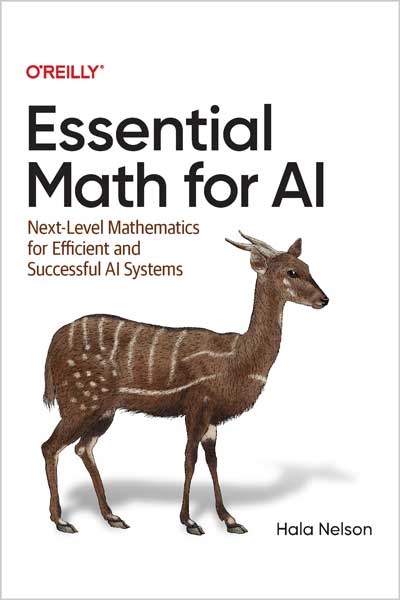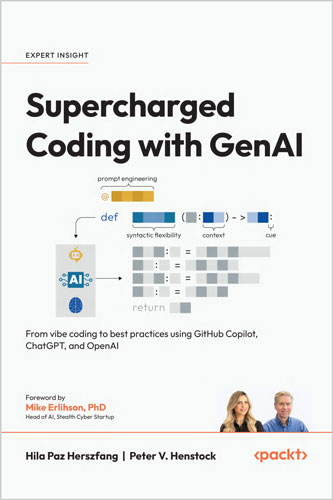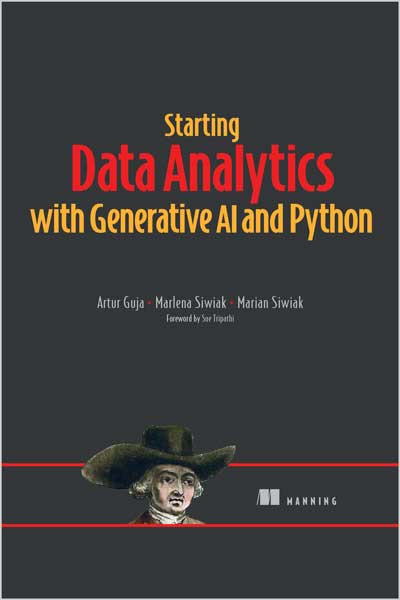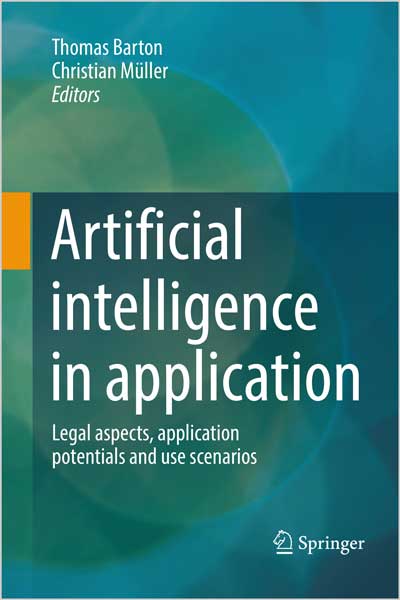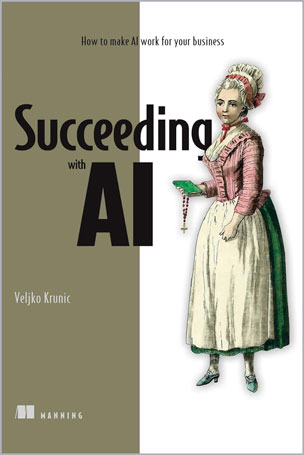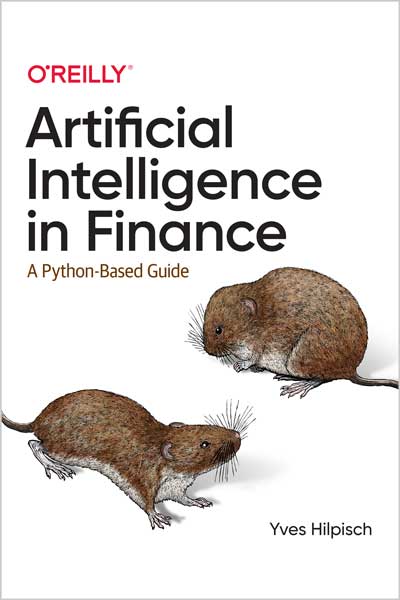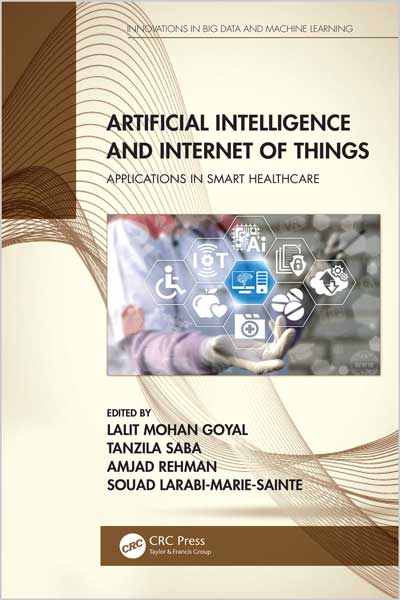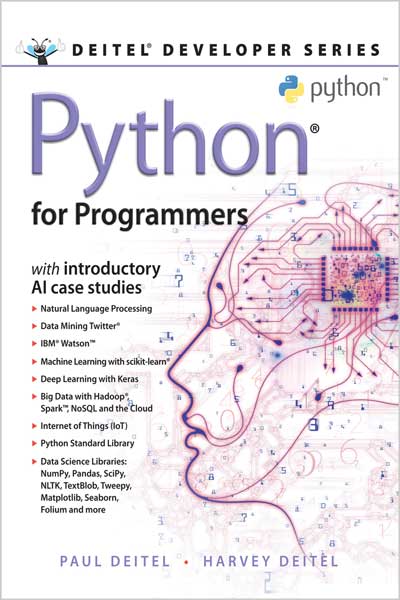A Modern Approach
Stuart Russell, Peter Norvig
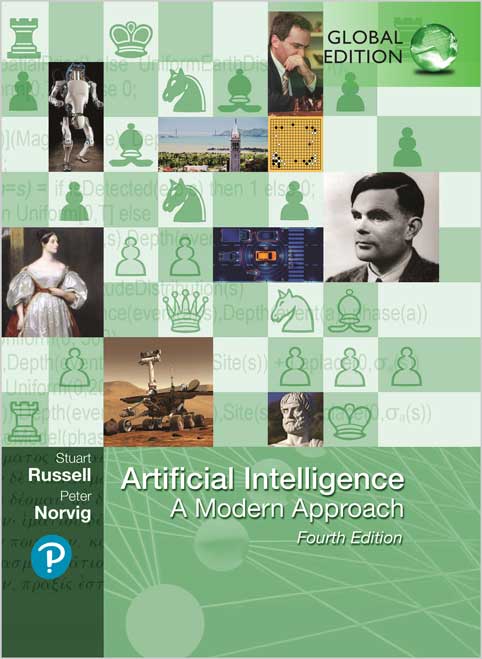
#AI
#Artificial_Intelligence
#robotic
Thelong-anticipated revision of ArtificialIntelligence: A Modern Approach explores the full breadth and depth of the field of artificial intelligence (AI). The 4th Edition brings readers up to date on the latest technologies presents concepts in a more unified manner, and offers new or expanded coverage of machine learning, deep learning, transfer learning, multi agent systems robotics, natural language processing, causality, probabilistic programming privacy, fairness, and safe AI.
Table of Contents
I Artificial Intelligence
1 Introduction
2 Intelligent Agents
II Problem-solving
3 Solving Problems by Searching
4 Search in Complex Environments
5 Constraint Satisfaction Problems
6 Adversarial Search and Games
III Knowledge, reasoning, and planning
7 Logical Agents
8 First-Order Logic
9 Inference in First-Order Logic
10 Knowledge Representation
11 Automated Planning
IV Uncertain knowledge and reasoning
12 Quantifying Uncertainty
13 Probabilistic Reasoning
14 Probabilistic Reasoning over Time
15 Making Simple Decisions
16 Making Complex Decisions
17 Multiagent Decision Making
18 Probabilistic Programming
V Machine Learning
19 Learning from Examples
20 Knowledge in Learning
21 Learning Probabilistic Models
22 Deep Learning
23 Reinforcement Learning
VI Communicating, perceiving, and acting
24 Natural Language Processing
25 Deep Learning for Natural Language Processing
26 Robotics
27 Computer Vision
VII Conclusions
28 Philosophy, Ethics, and Safety of AI
29 The Future of AI
A Mathematical Background
B Notes on Languages and Algorithms
About the Authors
Stuart Russell was born in 1962 in Portsmouth, England. He received his B.A. with first-class honours in physics from Oxford University in 1982, and his Ph.D. in computer science from Stanford in 1986. He then joined the faculty of the University of California at Berkeley, where he is a professor and former chair of computer science, director of the Center for Human-Compatible AI, and holder of the Smith–Zadeh Chair in Engineering. In 1990, he received the Presidential Young Investigator Award of the National Science Foundation, and in 1995 he was co-winner of the Computers and Thought Award. He is a Fellow of the American Association for Artificial Intelligence, the Association for Computing Machinery, and the American Association for the Advancement of Science, and Honorary Fellow of Wadham College, Oxford, and an Andrew Carnegie Fellow. He held the Chaire Blaise Pascal in Paris from 2012 to 2014. He has published over 300 papers on a wide range of topics in artificial intelligence. His other books include: The Use of Knowledge in Analogy and Induction, Do the Right Thing: Studies in Limited Rationality (with Eric Wefald), and Human Compatible: Artificial Intelligence and the Problem of Control.
Peter Norvig is currently Director of Research at Google, Inc., and was the director responsible for the core Web search algorithms from 2002 to 2005. He is a Fellow of the American Association for Artificial Intelligence and the Association for Computing Machinery. Previously, he was head of the Computational Sciences Division at NASA Ames Research Center, where he oversaw NASA’s research and development in artificial intelligence and robotics, and chief scientist at Junglee, where he helped develop one of the first Internet information extraction services. He received a B.S. in applied mathematics from Brown University and a Ph.D. in computer science from the University of California at Berkeley. He received the Distinguished Alumni and Engineering Innovation awards from Berkeley and the Exceptional Achievement Medal from NASA. He has been a professor at the University of Southern California and a research faculty member at Berkeley. His other books are: Paradigms of AI Programming: Case Studies in Common Lisp, Verbmobil: A Translation System for Face-to-Face Dialog, and Intelligent Help Systems for UNIX.
